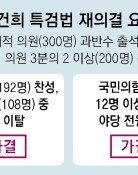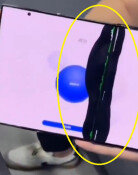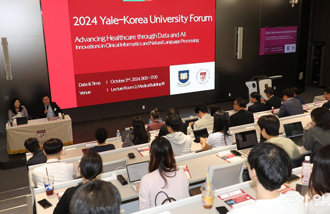Gov’t reprimands medical students seeking leave of absence
Gov’t reprimands medical students seeking leave of absence
Posted October. 03, 2024 07:19,
Updated October. 03, 2024 07:19
Seoul National University College of Medicine became the first of 40 medical schools nationwide to approve a leave of absence for students who applied for a leave of absence in protest against the expansion of medical school students by violating the education ministry's no-leave policy. The ministry said, “Alliance leave cannot be a legitimate reason for a leave of absence,” started an audit of Seoul National University and sent a letter to medical schools nationwide banning alliance leave. However, other universities are leaning toward granting leaves of absence to medical students, with Yonsei University’s medical college set to make a final decision this week.
Seoul National University has decided to allow the leave of absence because there is no reason to deny it under its academic rules, and it is practically impossible for students who refused to attend the first semester to cram in a year's worth of classes and get promoted even if they return immediately. Only 3.4 percent of medical students are enrolled in the second semester. While the Education Ministry is adhering to the “no leave of absence and no flunk” policy for fear of disruptions in medical school classes and the production of new doctors for next year, Seoul National University's medical college maintains that it “cannot promote medical students who are not properly educated.” The decision to allow students to take a leave of absence was also based on the university’s judgment that enables students who wish to attend classes to do so properly would ease the burden of excessive classes next year.
The ministry immediately set up a 12-member audit team to inspect Seoul National University and said it would “closely inspect the university and reprimand those responsible as sternly as possible if serious irregularities are found.” However, university education is not a constitutional obligation, so universities are allowed to let students take a leave of absence if they wish, although they can restrict the timing students are permitted to take such a leave. It is also questionable whether prohibiting the leave of absence is educational. The education ministry criticized Seoul National University's decision to approve the leave of absence as “an attempt to neutralize efforts to normalize medical school education,” but wouldn’t unconditionally promote students who have not attended classes properly be a measure that hinders the normalization of the academic process?
For the Education Ministry, which has promised to deregulate universities, to pressure universities with unnecessary audits is effectively its admission that there is no way to stop the collapse of medical education and disruptions in the supply of doctors except to “unconditionally push them out” regardless of the quality of medical care the public will come to receive. How did we get to the point where the Education Ministry is encouraging the deterioration of medical education that deals with human life? If this situation continues, the mass refusal to attend classes could continue through next year. Instead of dwelling on the hopeless prospect of students returning to class and promotion, the ministry needs to come up with a realistic alternative that takes into account the situation including the conflict between doctors and the government and the state of medical education.






